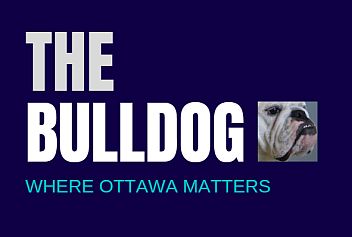Sutcliffe Needs A 5% Tax Hike: BENN

Putting off the inevitable is not a long-term solution. Too many politicians can’t even think beyond the next election.
Toronto City Council, at Mayor Olivia Chow’s urging, just passed an operating budget with a 9.9-per-cent property-tax-rate hike – after getting the province to assume responsibility for its Don Valley Parkway and Gardiner Expressway. Why the nearly 10-per-cent increase? Very simply put, Toronto City Council kept putting off the inevitable until the inevitable finally couldn’t be put off anymore.
Which takes us to Ottawa City Hall. For more than a decade, the city’s budget has been set by reverse financial engineering, based on a politically palatable maximum property-tax increase. Just like Toronto. And just like Toronto, neither city council nor city staff have shown an appetite for cutting back spending. Not merely cutting the rate of increase in the amount spent. Actually reducing the amount spent.
For far too long, city council has raided the reserves to balance the budget. And balance the budget it must. It is a statutory requirement. At some point the reserves are depleted. At that point, and quite frankly it should be well before that point is reached, tough decisions will need to be made.
There are two basic elements when it comes to solving financial shortfall: increase revenue and reduce spending. Some combination of the two being the optimal way to handle the problem.
So Mayor Mark Sutcliffe, what’s it going to be? Are you prepared to introduce a, say, five-per-cent tax increase for 2025? Are you going to instruct staff to prepare a budget that shows an actual reduction in the total amount spent?
Why? Because lead times matter. If the tax rate is going to rise by five per cent, then you should do it in 2025. Better to do it early in your term, so that you can campaign for re-election on a couple of years of back to the usual 2.5-per-cent increases, after the taxpayers have absorbed the big hit. It is also useful to recall some basic arithmetic fundamentals. The absolute increase in tax revenues of small increases after a big increase can add up quickly. Your political handlers, notably the ones who pull the levers behind the curtains, will help you line up the necessary support on council. Who knows? They may even be able to help with the arithmetic.
When it comes to actual cuts to spending, you need to understand it takes a considerable amount of time and effort to identify what cost elements can be cut and the consequences of those cuts. Note to the mayor, there are very few unintended consequences. There are, however, a lot of “gee, we didn’t think that would happen” consequences. All the better to start now.
Finally, try as you might to keep this under wraps, you won’t be successful. City hall is a sieve. Somebody will let it slip. It might be someone who populates the council chamber. Or one of their assistants. It might be someone in the city administration. Someone who fears losing part of their micro-empire. Or their job.
In any event, there is no time like the present to start planning for the inevitable. Because eventually the inevitable will happen. That is self-evident. Just ask Olivia Chow.
Ron Benn, a finance executive, has been a member of the Centrepointe Community Association for the better part of three decades.
—
—
RECOMMENDED FOR YOU
Watson Is Alive And Well And Living At City Hall
Lansdowne: Do You Smell An Agile Audit Rat?
Lansdowne: Real Audit Or Nerf-Ball Audit?
—
DON’T MISS OUR REGULAR FEATURES
Everything Ottawa Full Local Bulldog Canadian
Opinion Comments Breaking News Auto
Ontario World Get Cheap Gas Big Money
Pop Gossip Your Home Relax … Tech
Bulldog Weather Full Local Sports
TV/Movies Travel
Page 2 Page 3 Page 4 Page 5 Page 6




Latest Comments